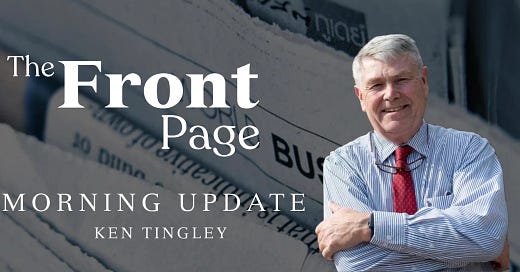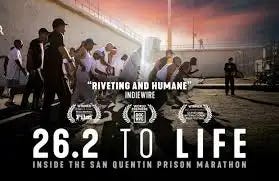BONUS: Failure to endorse another blow against freedom of the press
Collins wins when Stefanik fails to show for debate in Glens Falls
Please consider supporting The Front Page with a paid subscription: HERE
The Washington Post and The Los Angeles Times both announced last week they would not endorse a candidate in the presidential race.
It was unprecedented for two of the most respected daily newspapers in the country to decide to sit out the most important presidential election since the Civil War.
And while there is a certain ambivalence among the general public about newspaper endorsements - few believe they have much impact on the voting public - what is of concern is who made that decision at the newspapers and why.
It was reported that after the Los Angeles Times editorial board, known for its liberal stances, unsurprisingly voted to endorse Democrat and Californian Kamala Harris, but biotech billionaire owner Patrick Soon-Shiong decided the newspaper should not endorse anyone.
Editorial page editor Mariel Garza and two reporters resigned, 2,000 readers canceled their subscriptions and 200 staff members signed an open letter to management demanding an explanation of why the owner had crossed that sacred line between management and newsroom independence.
"I am resigning because I want to make it clear that I am not okay with us being silent,” Garza told the Columbia Journalism Review. “In dangerous times, honest people need to stand up. This is how I’m standing up.”
"This is a point in time where you speak your conscience no matter what," Garza continued." And an endorsement was the logical next step after a series of editorials we’ve been writing about how dangerous Trump is to democracy, about his unfitness to be president, about his threats to jail his enemies. We have made the case in editorial after editorial that he shouldn’t be reelected. It was a logical next step. And it’s perplexing to readers, and possibly suspicious, that we didn’t endorse her this time.”
It was even more surprising when The Washington Post followed suit.
Washington is a company town and that company is the federal government. No one covered the federal government as well as The Washington Post.
The Post, which has a long history of endorsing Democrats, announced it would not endorse, not only in this election but in any future presidential election.
The newspaper also published a story revealing that editorial staffers had already drafted an endorsement of Harris but were told not to publish it by The Post's billionaire owner Jeff Bezos, who owns Amazon.
The Post also saw an outcry from readers with 2,000 readers canceling subscriptions while 14 of its columnists called The Post's failure to condemn Trump's threats against freedom of the press a "mistake."
Authoritarian scholar and Yale University professor Timothy Snyder called the phenomenon "anticipatory obedience" in his book On Tyranny.
Snyder writes in the book, "In times like these, individuals think ahead about what a more repressive government will want, and then offer themselves without being asked. A citizen who adapts in this way is teaching power what it can do.”
In this case of two billionaires are saying they are attempting to be fair.
Snyder told The Guardian newspaper this is nonsense.
“Oligarchs, the very wealthy people, want to tell us that they’re just ‘staying out of politics’. But of course, when you stay out of politics in a way that harms democracy, what you are really doing is saying, we, the really wealthy people, are going to be fine in the new post-democratic order,”Snyder said. “What they are saying is: after democracy dies in darkness, they’ll be the ones who will be moving happily about in the shadows.”
But by showing weakness now, authoritarian leaders know they can go further the next time.
Leave it to my former colleague Maury Thompson to come up with the perfect quote he found in the Granville Sentinel in 1895.
"It does not hurt a newspaper to have enemies," the Sentinel wrote over 100 years ago. "Being personally unpopular is not always a bad thing. It is impossible for an editor to do his duty and keep on good terms with everybody."
It's a lesson that Patrick Soon-Shiong and Jeff Bezos still have not learned.
Back in March, I reviewed how over a 14-year period in Hungary, Viktor Orban and his supporters gradually took control of all the major media outlets in that country and forced them to take positions supporting Orban.
Gradually the independent media disappeared and so did any opposition to Orban.
That's how we gradually lose freedom of the press I wrote at the time, not with a Jan. 6-type event but with corporations yielding the power willingly.
It's like if Rupert Murdoch bought MSNBC and CNN and demanded Fox News programming from them.
The non-profit Human Rights Watch summed up the situation in Hungary this way:
"The (Hungarian) government's increased control over public and private media, part of its broader assault on rule of law in Hungary, undermines the ability of the media to hold the executive to account, a vital function of democracy."
No one thinks that either newspaper endorsement would swing the election one way or another, but what if the owner steps in next time to kill an investigation into corruption by the new administration because it might hurt one of their other businesses?
A vote for Donald Trump is a vote against freedom of the press, the First Amendment and free speech.
That is what is on the line this Election Day.
26.2 to life
ESPN is known primarily as a premier sports network, but don't sell its more serious programming like "Outside the Lines" and its ESPN films short.
In the documentary called 26.2 to life, three inmates earn redemption and a second chance at life while making you wonder why every corrections department does not have a running program.
When marathoner and coach Frank Ruona establishes the 1000-Mile Club at San Quentin Prison, it leads to one of the most unorthodox marathons in the world.
The documentary follows three inmates looking to find a way to live while serving a life sentence for murder through running.
The coach, Ruona, eventually establishes a yearly marathon - The San Quentin Prison Marathon - over a meandering course inside the prison yard that covers 105 dizzying laps with other inmates often getting in the way.
One of the inmates eventually earns a Boston Marathon qualifying time and three of the runners, despite a life sentence, get paroled. It is an inspirational look at a program that should be in every corrections department. It is currently being streamed on Hulu, Prime and Apple TV.

Collins-Stefanik debate
Democrat Paula Collins used an old political ploy Monday night.
Since incumbent Elise Stefanik would not debate her, she took to the stage at Crandall Library beside an empty lectern and apologized to the audience for Stefanik's failure to show.
It wasn't lost on the audience Stefanik did show at Madison Square Garden a day earlier at a Trump event mirroring a similar Nazi rally that took place in 1939.
Stefanik was one of dozens of speakers at an event filled with rhetoric that was simply un-American.
Back in Glens Falls, Collins stood next to the empty lectern.
"Elise Stefanik does not take me seriously," Collins said, "because I am broke, but I'd rather be be broke with integrity."
That brought cheers from those assembled.
Stefanik has been a no-show in her own district while running for a sixth term in Congress. She has not made one announced public appearance in the past two years.
After brief remarks, Collins took questions from the audience but her final message could almost be seen as a concession as she promised to continue the fight and run again in two years.
Collins also urged voters to resist the fascist leanings of Republicans like Stefanik.
"I'm shocked to see such a rapid march toward fascism in the the last six months of the campaign," Collins said. "Each of us must make a decision to resist or march to that drum."
Then Collins said something I had not considered.
"You're very presence here is an act of protest," Collins said. "Someone may be photographing you and you may end up on some list. Well, I say, put me on that list.!"
That brought cheers from the crowd and then we all looked around the room.
Ken Tingley spent more than four decades working in small community newspapers in upstate New York. Since retirement in 2020 he has written three books and is currently adapting his second book "The Last American Newspaper" into a play. He currently lives in Queensbury, N.Y.






“We must always take sides. Neutrality helps the oppressor, never the victim. Silence encourages the tormentor, never the tormented.” - Elie Wiesel
months ago, when hardly anyone had heard the name Paula Collins, I predicted she would receive 38%-42% of the vote against Stefanik.
38% would represent a baseline anti-Stefanik vote and Stefanik would trumpet her 62% win.
But if Stefanik’s tally dips below 60% of the vote it is a troubling signal of her weakness in the district despite a massive advantage of money, incumbency, and name recognition.
42% for Collins would signal Stefanik’s weakness in the district since it would likely mean that turnout for Stefanik will have dropped and her support for Trump has turned her base against her.
43% for Collins would be a stunning result and would show national Democrats that Stefanik is not as strong as she appears, that she would be vulnerable in the next election.
Imagine a 45% vote for Collins!